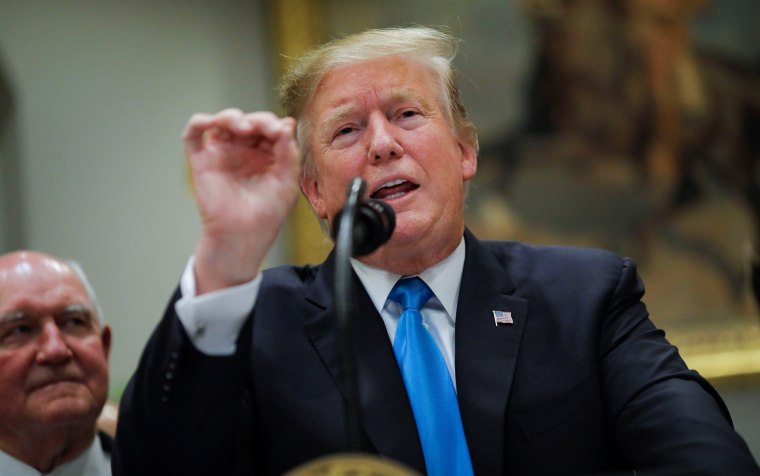WASHINGTON — Once again on Thursday, President Donald Trump used the T-word, this time saying that former FBI officials who were involved in investigating his campaign committed treason.
Asked at a White House event which of his adversaries he had in mind when he accused them of treason, he said, "A number of people. They have unsuccessfully tried to take down the wrong person." He then specified former FBI director James Comey, former acting FBI director Andrew McCabe, former FBI lawyer Lisa Page, and former FBI agent Peter Strzok.
"That's treason. They couldn't win the election, and that's what happened."
But that isn't what the Constitution says treason is. It doesn’t mean being disloyal to the president. And it certainly would not apply to any actions against a private citizen, which Donald Trump was as a candidate for president.
Here's what the Constitution says (Article III, Section 3): "Treason against the United States, shall consist only in levying War against them, or in adhering to their Enemies, giving them Aid and Comfort."
"Enemy" means a country or an entity that has declared war or is in a state of open war against the US. "Aid and comfort" must be something material, not words of encouragement.
That "enemy" element of treason is very significant. For example, Julius and Ethel Rosenberg, executed in 1953 after they were convicted on espionage charges for passing US atomic bomb secrets to the Soviet Union, could not be charged with treason because the Soviets were not considered enemies.
No one has been convicted of treason in the U.S. for nearly 70 years. The last few cases involved Americans who aided Germany and Japan during World War II.
The Justice Department considered charging John Walker Lindh with treason in 2001 but decided against it because of the extremely high burden of proof. In 2006, the Justice Department charged an Oregon-born man, Adam Gadahn, with treason for making propaganda videos for al Qaeda.
The Constitution does not specify a penalty, but a federal law does — anything from five years in prison to death.

